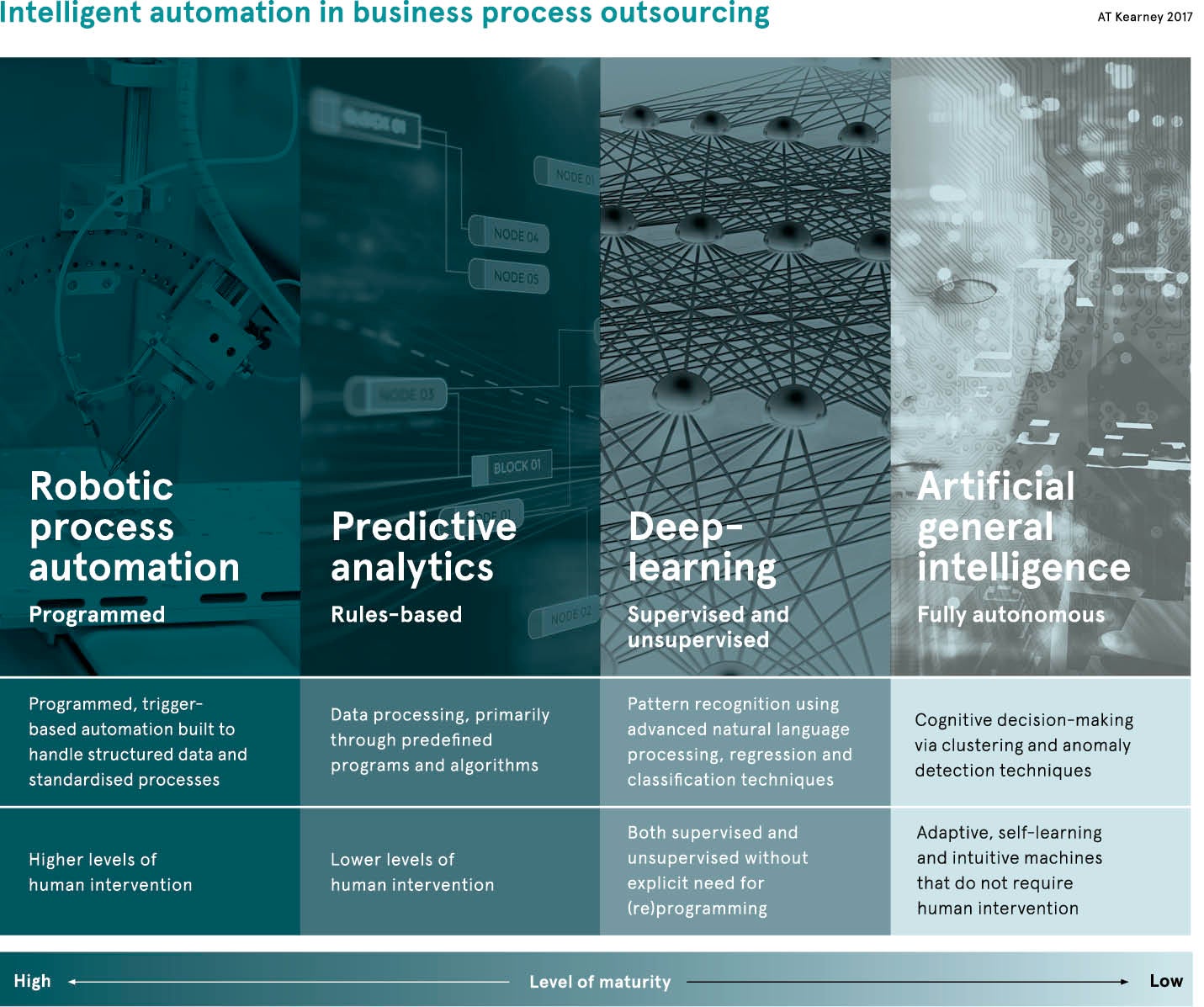Artificial intelligence (AI) has fuelled science fiction for decades. Yet now, with technology having caught up with and overtaken human imagination, its capabilities are becoming science fact and too powerful for business leaders to ignore.
AI, even in its relative infancy, is enabling C-suiters to redraw all aspects of their organisations. Those who embrace AI and related nascent digital technologies – automation, robotics, machine-learning, big data – are already gaining a significant advantage over laggards.
“Everything invented in the past 150 years will be reinvented using AI within the next 15 years,” predicts Randy Dean, San Francisco-based chief business officer at Launchpad.AI. “Every industry is going to be affected; almost every enterprise problem is ripe for an AI-derived solution or improvement. Early adopters will have an advantage.”
The potential corporate market for AI services, software and hardware is colossal. International Data Corporation research forecasts it will reach $57.6 billion in 2021, significantly more than the $12 billion spent last year. Further, PwC estimates AI could contribute up to $15.7 trillion to the global economy in 2030, a higher figure than the current output of China and India combined.
However, incorporating AI into an organisation can be extremely challenging and risky, especially for large enterprises lumbered with legacy systems. While cutting-edge AI applications are increasingly common place, with a mushrooming number of organisations, from tech giants to startups, developing working solutions, the financial and time capital involved can be overwhelmingly extensive.
These are costs that have to be taken on, though, if an organisation, regardless of size, wants to thrive in the future.
Outsourcing AI is one option many are seriously considering. The benefits of using third-party service providers for AI solutions are manifold. They include greater access to global talent pools – a key point when you consider that leading AI data scientists, because of their scarcity, can command seven-figure salaries – and the ability to tap into specialist skillsets and experts who will be able to solve company-specific problems with greater efficiency, thus helping business leaders choose the appropriate technology for their organisation.
“Even the largest technology brands are outsourcing AI projects,” says Dr Paula Parpart, founder of Brainpool, a worldwide network of AI and machine-learning luminaries. “Demand for top AI experts and data scientists is far outstripping supply, which is why outsourcing is a compelling option. Some of the specialisms required are so niche, the talent so hard to find and contractual relationships so tight that it could take two years for an organisation to fill a role.”
Further, thanks to that level of expertise, tried-and-tested models are quicker to implement compared with crafting them internally. And if an outsourced AI solution does not quite work and needs to be switched, the cost and risk burden is markedly less than the in-house alternative. And, at this stage of AI’s maturity, experimentation is advised.
A recent Accenture report predicts that AI will add £654 billion to the UK economy by 2035. Vinod Patel, managing director of Accenture Operations, says: “A significant portion of that will be outsourced to third-party service providers. Increasingly, organisations are looking at external parties to drive innovation.”
Advising caution, Mr Dean says: “It’s important to note that AI is not magic and it is not always successful in finding improvements. But outsourcing provides ready access to the required talent today versus waiting to recruit and hire people, which will be very hard, time consuming and expensive.
“There are millions of AI opportunities across the enterprise, though there is very little off-the-shelf software. AI is a diverse field and often requires and ensemble of approaches to achieve success. It will take multiple years for organisations to begin to take full advantage of AI, but the sooner business leaders start understanding what AI can do for them, and experimenting with it, the more likely they are to come out on the other side, successful in the marketplace.”
Marco Rimini, chief development officer of Mindshare Worldwide, agrees that AI “if applied correctly, will empower an organisation to operate at levels previously out of reach of manual capability and ability, which in turn will lead to significant opportunities, irrespective of industry”.
He echoes Cathy O’Neil’s observation, in Weapons of Math Destruction, that poorly thought-through AI applications can be highly damaging; another reason to engage experienced third parties in the AI space. “If a business incorrectly applies AI, or ignores it, it will enforce negative change and that could be fatally damaging,” says Mr Rimini.
He warns that it is critical for business leaders who chose to outsource AI that they guard the most important digital assets and data from the third parties, and deliberate over their business strategy, which could be altered unrecognisably by potent new technology.
Mr Rimini cautions: “Whatever size, you need to invest in-house to determine the role of AI, or risk outsourcing the core of your organisation and also becoming overdependent on the outsourcing company, which in a worst-case scenario could become a direct competitor.
“AI is not an additional service, or function in itself, but can be the heartbeat of a business. Ultimately, you shouldn’t outsource the core of your business.”






